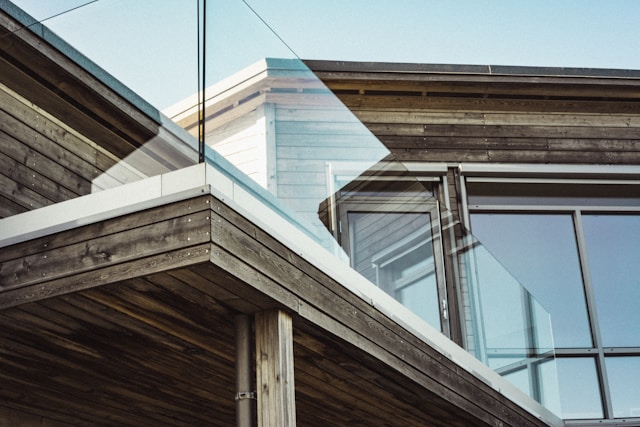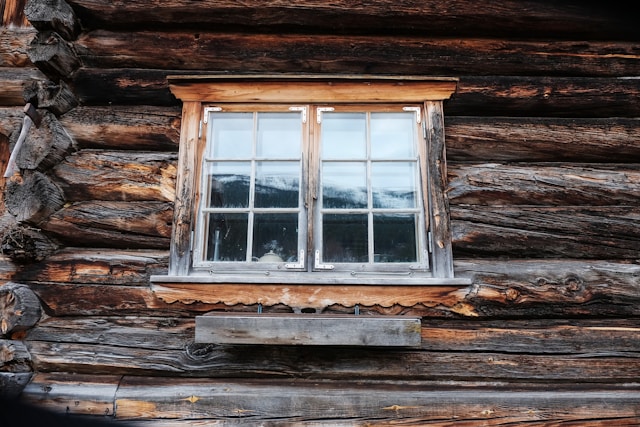Blog
Wooden houses and ecology – is it worth choosing them?
Wooden houses are gaining popularity not only because of their charm and aesthetics, but many people choose them because of their ecological nature. How is it with this ecology – are all aspects of wooden construction really eco-friendly? Check out our list!
Table of contents
- Wooden houses – ecology in the first place
- Are wooden houses ecological? Everything you need to know
- Comfort of living in wooden houses
Wooden houses – ecology in the first place
Wood is a renewable resource, which is its main advantage from an ecological point of view. Trees can be planted and grown under controlled conditions, ensuring a continuous supply of raw material without depleting natural resources. Unlike materials such as steel or concrete, which require a lot of energy and raw materials to produce, wood can be harvested sustainably. Responsible forest management, where the felling of trees is sustainable by planting new ones, minimises the impact on the environment and helps to maintain ecological balance.
As trees grow, they absorb carbon dioxide (CO2) from the atmosphere, which is then stored in wood. The use of wood as a building material means that this carbon remains trapped in the structure of the house throughout its lifetime, which contributes to the reduction of CO2 in the atmosphere. This is one of the most important aspects in the context of the fight against climate change, as building wooden houses can contribute to reducing the global carbon footprint.

Are wooden houses ecological? Everything you need to know
What are the most important advantages of wooden houses in practice? See what aspects are worth knowing.
Energy efficiency
The construction of wooden houses is less energy-intensive compared to the construction of houses from conventional materials such as concrete or steel. Wood production and transportation require less energy, resulting in a smaller carbon footprint. In addition, timber structural components are often prefabricated in factories, which minimizes construction waste and reduces construction time. Prefabrication also allows for better quality control, which translates into the durability and strength of the final structure.
Thermal insulation
Wood has natural insulating properties, which contributes to better energy efficiency of buildings. Timber houses are easier to maintain a constant indoor temperature, which leads to less need for heating in winter and cooling in summer. As a result, energy consumption is reduced, which is good for both the environment and the homeowner’s wallet. The good insulation properties of wood also help to reduce CO2 emissions associated with the operation of the building.
Durability and maintenance
Contrary to popular belief, wooden houses are very durable. Properly protected against external factors, such as moisture, insects and fungi, they can serve for many generations. Modern technologies of impregnation and protection of wood significantly increase its resistance to adverse weather conditions. An example is specialized preparations and techniques that protect wood against mold, fungi and insects, which significantly extends its life.
Easy to repair and upgrade
Wood is a material that is relatively easy to repair and modernize. In the event of damage, individual components of the structure can be easily replaced, extending the life of the building and reducing construction waste. In addition, wooden houses can be relatively easily adapted to the changing needs of users by introducing new technologies or modifying the layout of rooms. This is particularly important in the context of the growing need to adapt buildings to new energy and environmental standards.

Comfort of living in wooden houses
Wooden houses are characterized by a unique appearance that combines tradition with modernity. The natural charm of wood gives interiors a warmth and coziness, which is difficult to achieve with other building materials. Wood as a natural material adds character to any interior, creating a harmonious and friendly living environment. Many people also appreciate the fact that wooden houses can be easily adapted to different architectural styles, from classic to modern.
Wood as a natural material has a positive effect on the microclimate inside the building. How?
- The hygroscopic properties of wood allow for natural regulation of air humidity, which prevents problems such as dry air in winter or excessive humidity in summer;
- Thelack of emissions of harmful chemicals such as formaldehyde, which are often present in synthetic materials, makes wooden houses a healthier place to live;
- Wood is also an antistatic material, which means it does not attract dust, which is beneficial for allergy sufferers.
Do you want more information about wooden house construction systems? Check out our offer for energy-efficient houses and passive houses.